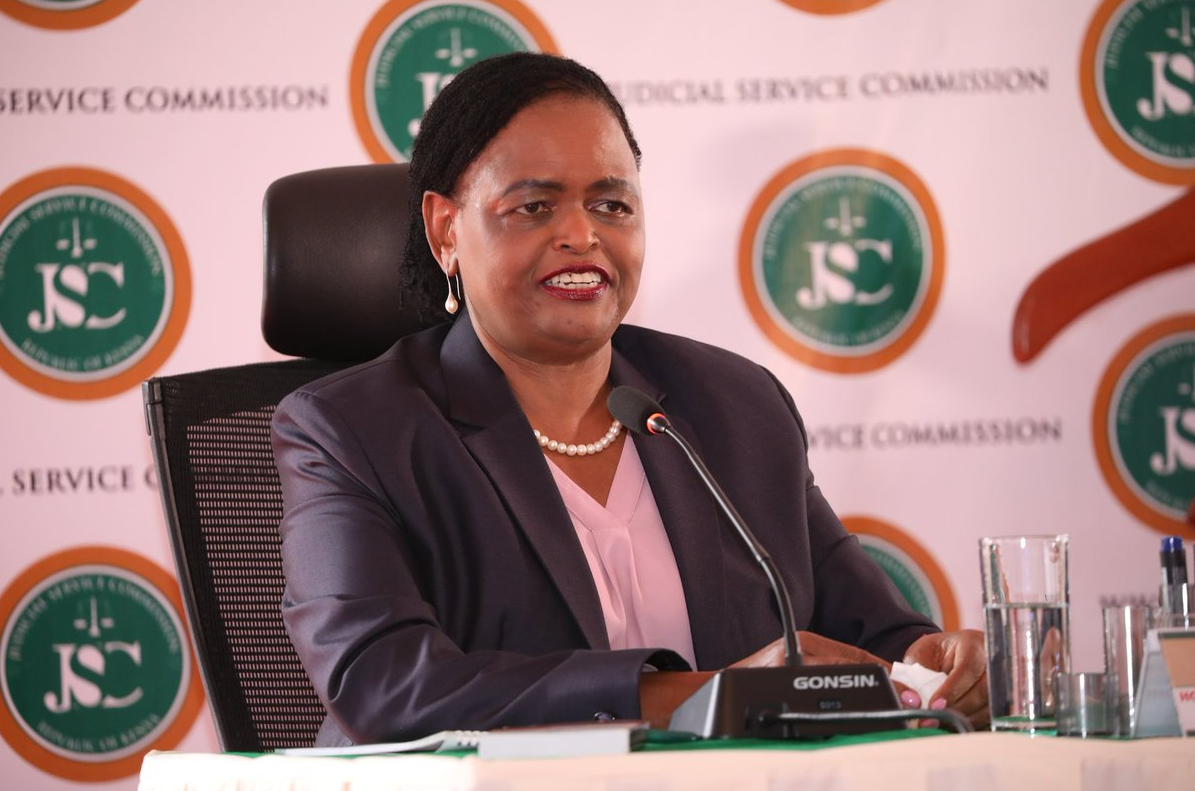Justice Martha Koome Karambu has moved within striking distance of the Chief Justice position, after the Judicial Service Commission (JSC) unanimously nominated her for the highest legal job in Kenya. The JSC has forwarded her name to President Uhuru Kenyatta for appointment to replace David Maraga, who recently retired head high after leading the nullification of the first round of the 2017 presidential elections.
Ms Koome, 61, was among 10 candidates interviewed by the JSC over the last two weeks. The other candidates were Justice Said Juma Chitembwe, Prof Patricia Mbote, Justice Marete Njagi, Philip Murgor, Justice Nduma Nderi, Fred Ngatia, Justice William Ouko, Dr Wekesa Moni and Alice Yano.
Prof Olive Mugenda, who chaired the interviews, said their duty was to select the best candidate, noting that they would not release the scores for each candidate. If appointed, Justice Koome will become the first female Chief Justice of the Republic of Kenya and first woman to head an arm of government.
See Also >> At COTU, Atwoli Keeps Succeeding Himself
During the interview, Justice Koome, who was third to be interviewed, said she will be banking on her experience as an insider of the Judiciary to transform courts.

How she got the job
Here is a summary of what Justice Koome on several key issues during her interview, as compiled by Daily Nation:
On sexual offences and gender issues: The law supports patriarchal structures. The legal structure is dominated by patriarchy. Laws are made in Parliament and the dominant gender of Parliament is male. But we have come a long way, especially with the 2010 Constitution which outlawed discrimination. We need to nurture our youth. In cases where there was no violence, like the Romeo and Juliet cases where the age differences were not huge, a slap on the wrist for the suspects is sufficient. You shouldn’t be hit with a sledge hammer yet you’re only 19 and the crime isn’t violent.
Dilemma of 41 judges pending appointment: This one must be resolved through negotiations. One major problem I see is with perception of independence and interdependence. The Judiciary and Executive are interdependent. This is not a beauty contest of who is serving Kenyans better.
Read >> Flamboyant Lawyers Not Among Kenya’s Finest
On corruption in the Judiciary and public perception: I can only speak for myself. The perception out there is that we are corrupt. If there are people moving out there bribing judges and magistrates, then we have structures that can deal with that. [We must] establish a communications department in the Judiciary that communicates judicial decisions to the public. We have to look at the current department and their ability to interpret judicial decisions.
On court orders that have seen the Executive accuse judges of judicial activism: Compliance with court orders is critical to the rule of law. What I see as a way out is for the National Commission on Administration of Justice (Ombudsman) to have an office to deal with compliance of court orders.
On technology to enhance justice delivery: I would get strong procurement processes and monitor value for money. My vision would be to continue with the transformation already happening.












Leave a comment